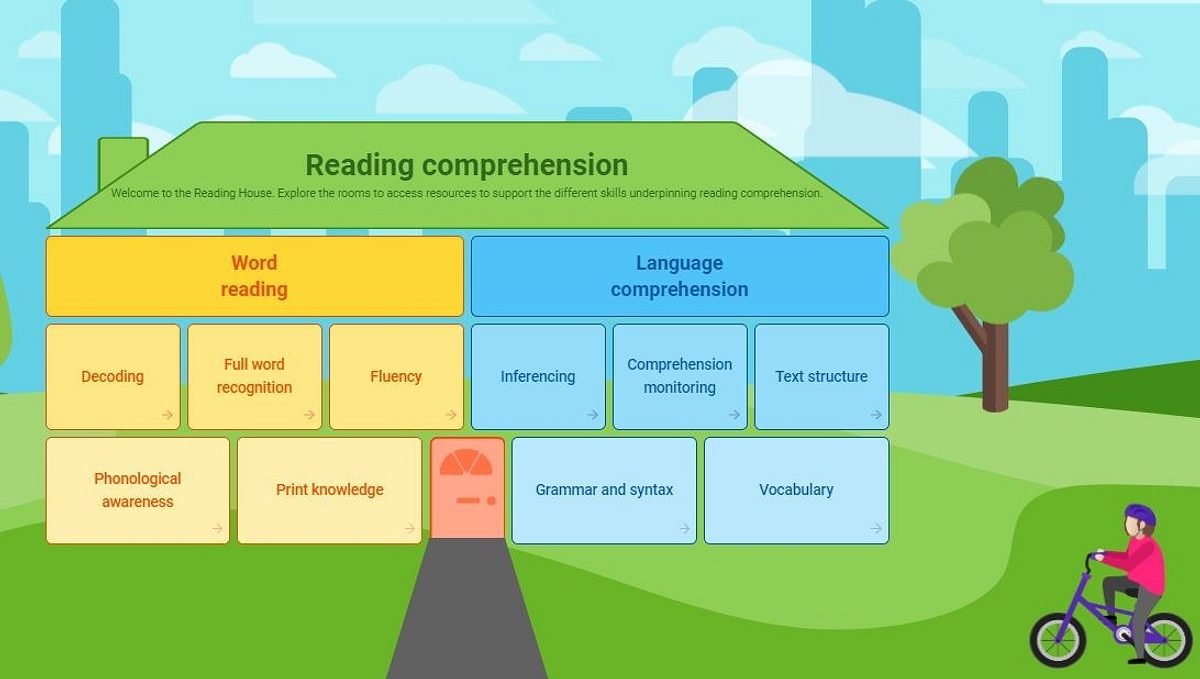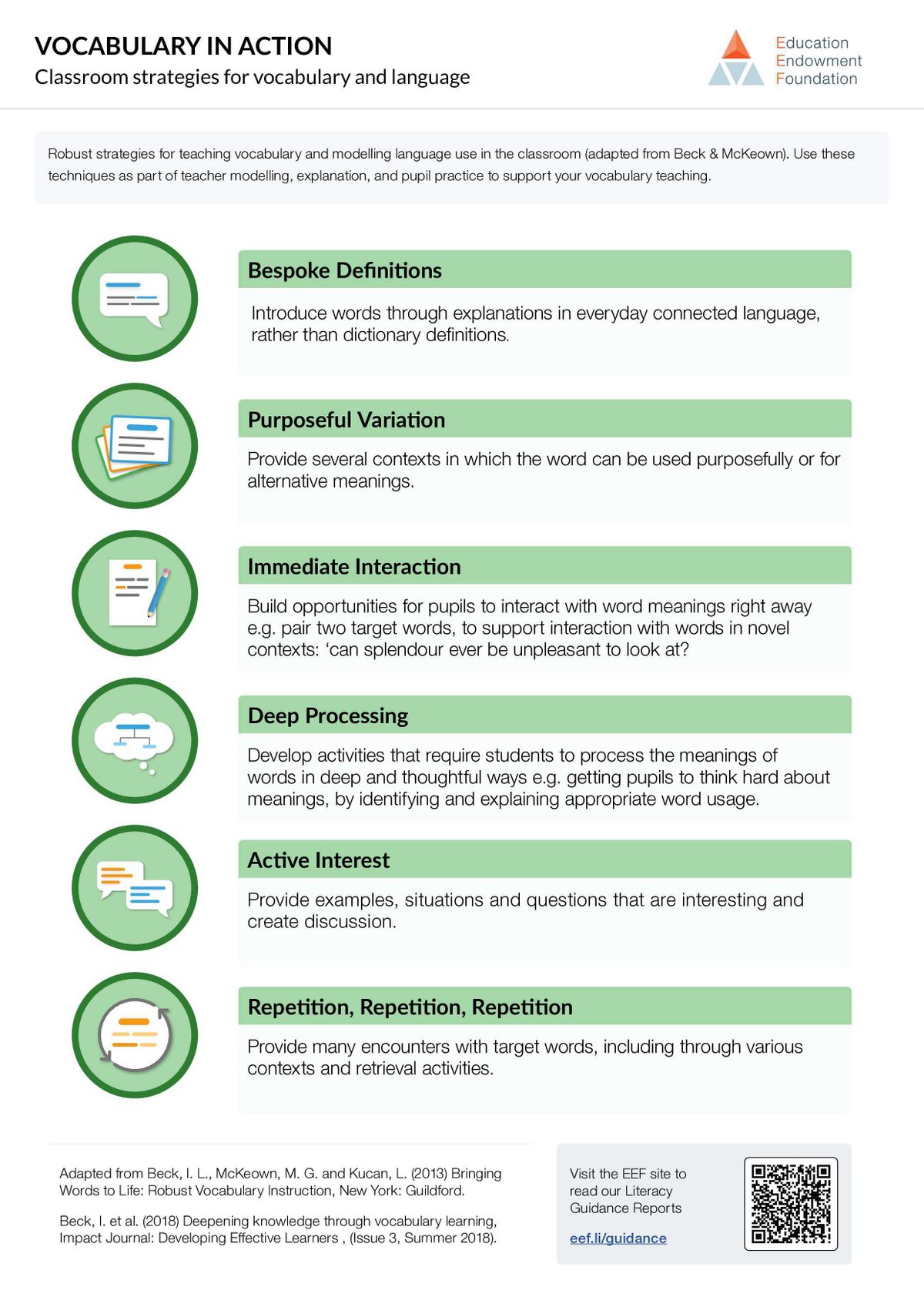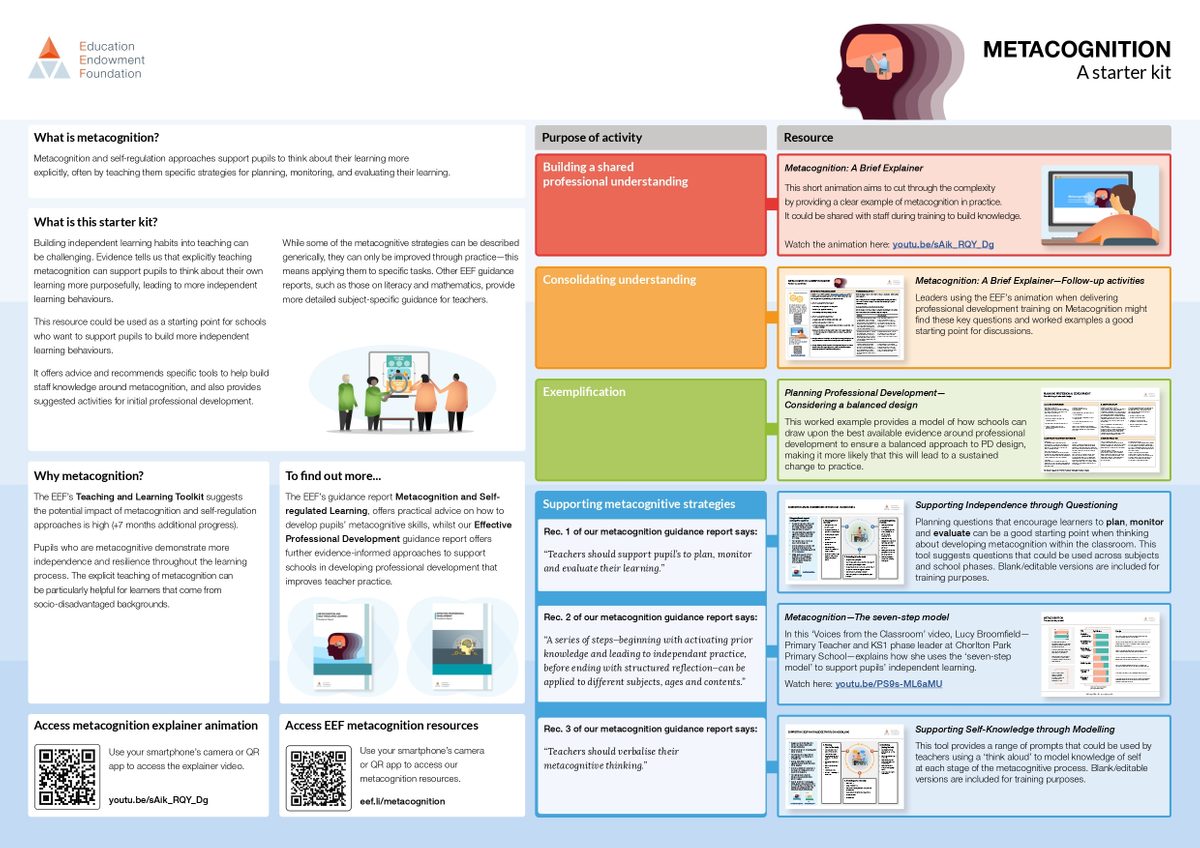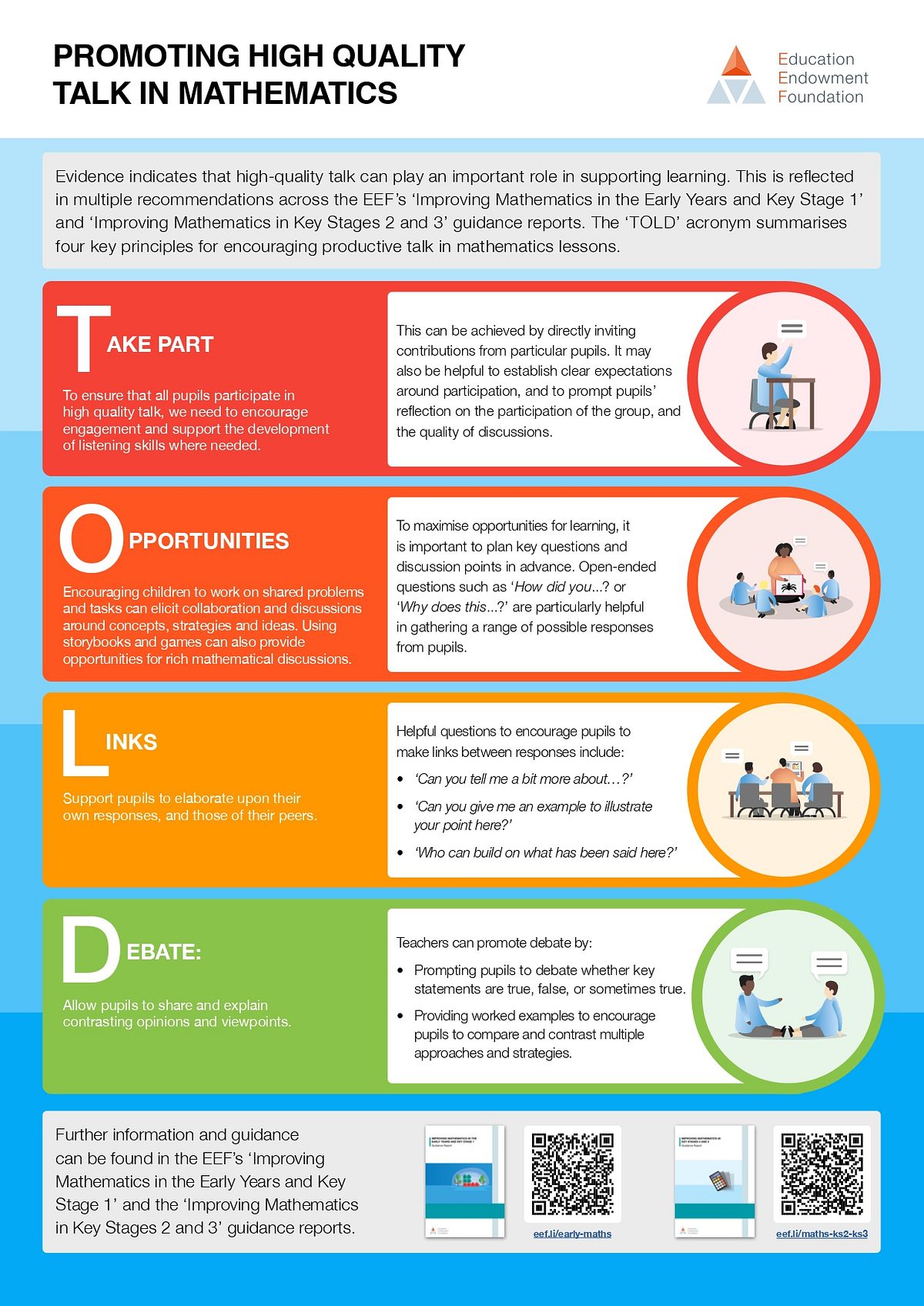September is here and children and staff across the country are starting a brand-new term, at the top of a brand-new academic year.
There’s a sense of renewed determination that accompanies this time, as educators and leaders prepare to get to know new classes and new children– and consider how best to set them up for success.
Here are some of the latest EEF resources to support you in planning for progress this year:
1. The Reading House
There is a huge amount of research about the teaching of reading, and how the different aspects of reading relate to one another. The ‘Reading House’ – adapted from Hogan, Bridges, Justice and Cain – is an illustration that helpfully breaks down some of this complexity.
This interactive tool includes a library of blogs, resources, and key definitions for teachers and leaders to learn more about the components of successful reading comprehension for individual classroom practice and for planning professional development.
In addition to the ‘Reading House’, our ‘Vocabulary in Action’ poster offers a straightforward, simple summary of key techniques we can use to develop our approaches to direct vocabulary teaching.


2. Metacognition starter kit
The EEF Teaching and Learning Toolkit, and EEF Metacognition and Self-Regulation guidance report, show the positive potential of mobilising metacognition in classrooms. However, implementing and sustaining approaches that support metacognitive thinking and independent learning can prove really challenging.
This metacognition starter kit signposts key EEF resources that could be helpful. It highlights a range of tools to help build staff knowledge and provides suggested activities for initial professional development on metacognition: helping build knowledge to develop those timely teacher habits to promote independent learning.

3. Mathematical purposeful play
Delivering high-quality teaching is essential to achieving the best outcomes for all pupils. Teaching approaches that ensure long-term retention of knowledge and fluency in mathematical key skills are crucial. Children need frequent opportunities to practise new mathematical skills to transfer the information learned in guided practice to their long-term memory. Talk can play an important role in supporting mathematical learning. Indeed, a well-designed game, well-chosen storybook or puzzle can be an opportunity to promote rich mathematical discussion. When playing with a purpose, children may discuss strategies, deepen their mathematical understanding, and apply what they have learned in a new context.

4. Early years professional development guide
Educators from all early years settings, including childminders and professionals working in schools or nurseries, can use this guide to assess and refine professional development (PD) offered in their context.
To increase the chance that participation in PD leads to practice improvements, we recommend that it:
- Builds practitioners’ knowledge;
- Motivates educators to adopt and maintain changes to their practice;
- Develops specific techniques; and
- Embeds new approaches into practice.
And if you want to hear more, our top performing podcast from 2022 – 23 was:
- Evidence into Action: Evidence informed leadership.
And our top three blogs read in 22.23 were:
- TOLD: Four Evidence-informed principles to promote high-quality talk in Maths
- The Five-a-day approach: How the EEF can support
- Mobilising Metacognition – A starter kit to support teacher understanding
If you want bitesize updates delivered to your email inbox, please do sign up to our newsletters here:
